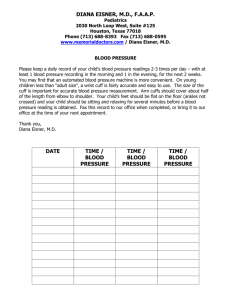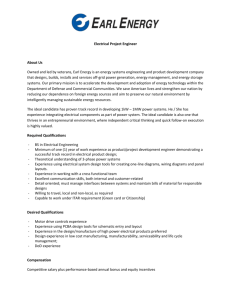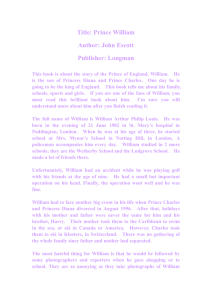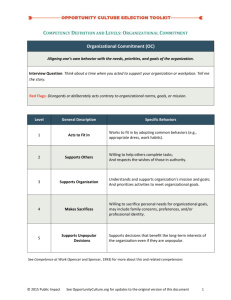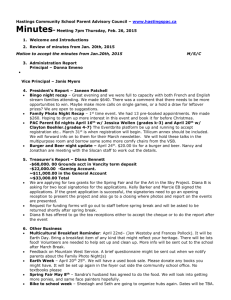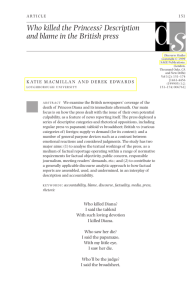Earl Spencer ~ Speech Analysis
advertisement
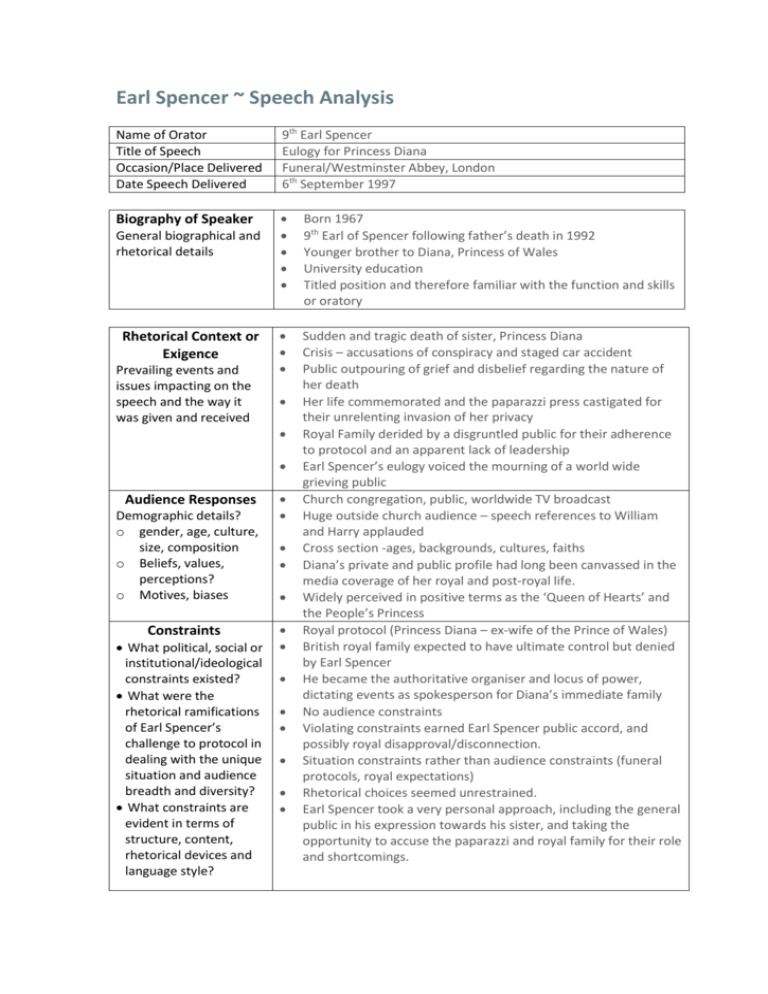
Earl Spencer ~ Speech Analysis Name of Orator Title of Speech Occasion/Place Delivered Date Speech Delivered 9th Earl Spencer Eulogy for Princess Diana Funeral/Westminster Abbey, London 6th September 1997 Biography of Speaker Born 1967 9th Earl of Spencer following father’s death in 1992 Younger brother to Diana, Princess of Wales University education Titled position and therefore familiar with the function and skills or oratory Sudden and tragic death of sister, Princess Diana Crisis – accusations of conspiracy and staged car accident Public outpouring of grief and disbelief regarding the nature of her death Her life commemorated and the paparazzi press castigated for their unrelenting invasion of her privacy Royal Family derided by a disgruntled public for their adherence to protocol and an apparent lack of leadership Earl Spencer’s eulogy voiced the mourning of a world wide grieving public Church congregation, public, worldwide TV broadcast Huge outside church audience – speech references to William and Harry applauded Cross section -ages, backgrounds, cultures, faiths Diana’s private and public profile had long been canvassed in the media coverage of her royal and post-royal life. Widely perceived in positive terms as the ‘Queen of Hearts’ and the People’s Princess Royal protocol (Princess Diana – ex-wife of the Prince of Wales) British royal family expected to have ultimate control but denied by Earl Spencer He became the authoritative organiser and locus of power, dictating events as spokesperson for Diana’s immediate family No audience constraints Violating constraints earned Earl Spencer public accord, and possibly royal disapproval/disconnection. Situation constraints rather than audience constraints (funeral protocols, royal expectations) Rhetorical choices seemed unrestrained. Earl Spencer took a very personal approach, including the general public in his expression towards his sister, and taking the opportunity to accuse the paparazzi and royal family for their role and shortcomings. General biographical and rhetorical details Rhetorical Context or Exigence Prevailing events and issues impacting on the speech and the way it was given and received Audience Responses Demographic details? o gender, age, culture, size, composition o Beliefs, values, perceptions? o Motives, biases Constraints What political, social or institutional/ideological constraints existed? What were the rhetorical ramifications of Earl Spencer’s challenge to protocol in dealing with the unique situation and audience breadth and diversity? What constraints are evident in terms of structure, content, rhetorical devices and language style? Description, Analysis, and Evaluation of the Arguments What was the speaker’s: specific purpose main claims and reasons use of data, evidence, testimony or examples explicit and implicit values and ‘power’ assumptions voiced in the message? Methods for countering or refuting opposing arguments? Effectiveness in matching his arguments with his ‘universal audience’ and the values being publicly espoused. Does the speech have lasting value? How was the speech received? Distinctive Voice? Language Techniques Use of personal pronouns Alliteration Personification Sibilance Accumulation Allusion to Classical myth Amplification and anecdotal recollection Evocative word choice Commemorated the life of Diana, acknowledged the media spotlight under which she lived and died. Pledged to ensure that her sons would be raised as she had wished them to be. Valorised Diana’s compassionate nature and humanity Highlighted the hopes and aspirations she had for her sons Acknowledged her human flaws and weaknesses but used them to stress her ability to connect with others Castigated the media’s predatory role in her life and the limitations imposed by royal protocols. Revelations are couched in sincere, heartfelt tones Substantive reasoning, with both explicit love and admiration for his sister countered by explicit media blame and condemnation of the royal family. Earl Spencer’s honest and forthright rhetorical style and manner reclaimed Diana as a figure worthy of family and public admiration and celebration. His assertions and arguments were in accord with the wider public audience ensuring his eulogy functioned as a fitting final tribute to Diana She was empowered in death, regained the power that had been usurped in life. Grieving brother, Remonstrator, Royal critic, Brotherly guardian, Everyman figure, Filial advocate to engage his audience and create a sense of shared grief: I stand before you today, the representative of a family in grief ... We are all united not only in our desire to pay out respects ... ‘you’ ‘your’ ‘greatest gift God-given’, ‘beloved boys’ ‘natural nobility’ ‘hands of newspapers’ her reputation will ‘stand’ after death ‘your wonderfully mischievous sense of humour’, ‘their souls are not simply immersed by duty and tradition’ her humanitarian and charitable role emphasised by reference to the anguish of AIDS and HIV sufferers, the plight of lepers, the homeless and those whose lives were blighted by the destructiveness of land mines ‘[Diana] the name of the ancient goddess of hunting’ – slur on the media who followed her every move ‘...a family in grief, in a country in mourning before a world in shock. Diana was the very essence of compassion, of duty, of style, of beauty. ... the big sister who mothered me as a baby, fought with me at school, and endured those long train journeys between our parent’s homes with me at weekends.’ This invites the audience to share his loss by personalising her human merits ‘selfess humanity standard-bearer’ ‘unique wonderfully mischievous joy for life’, ‘beautiul and radiant’’ ‘unforgettable eyes’, ‘boundless energy’, ‘vulnerability’ ‘never to be extinguished’.
